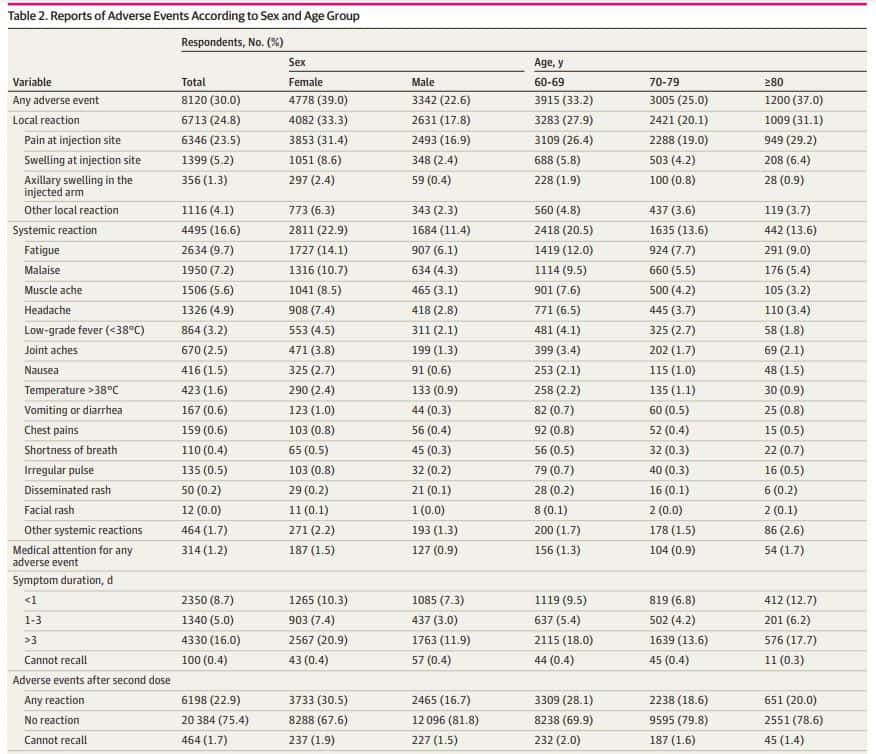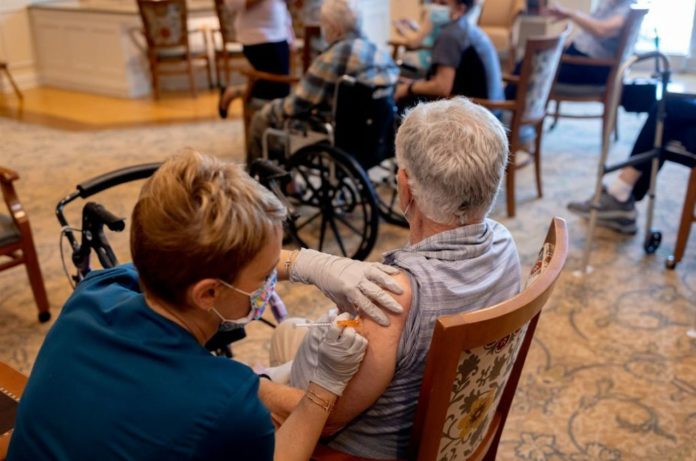Concerns about losing immunity following the Pfizer-BioNTech BNT162B2 mRNA vaccination prompted the Israeli Ministry of Health to launch a campaign on July 29, 2021, to give booster (third) doses to people who had had their second dose at least 5 months before.
The booster was initially recommended for people aged 60 and up. The incidence of adverse events (AEs) or side effects among persons 60 years and older who got a booster dosage was investigated in this survey.
This study enrolled members of Clalit Health Services (CHS), an organization that covers more than half of Israel’s population. Individuals aged 60 years or older who got a booster dose of the Pfizer-BioNTech BNT162b2 mRNA COVID-19 vaccine within the first five days of the campaign (July 30 to August 3, 2021) were included in the study.
A total of 66 094 CHS members aged 60 and above who received a booster dose during the study period were contacted, with 27 046 (40.9 percent) responding to the survey. The respondents’ median age was 71 years (IQR, 66-75 years); 43.6 percent were 60 to 69 years old, 44.5 percent were 70 to 79 years old, and 12.0 percent were 80 years or older. Female respondents made up 45.3 percent of the total, and 49.2 percent had at least one risk factor for severe COVID-19.
30.0 percent of respondents said they had at least one AE, 24.8 percent said they had local reactions, and 16.6 percent said they had systemic reactions. Pain at the injection site (23.5 percent), fatigue (9.7 percent), and malaise (7.2 percent) were the most common side effects.
The majority of responders (67.8 percent) said their general feeling after the booster was comparable to how they felt after the second dose; 18.7 percent and 11.1 percent, however, said they had a milder or worse reaction. Only 1.2 percent sought medical help as a result of an AE.
Females were more likely to report AEs than males (39.0 percent vs 22.6 percent ). Females were nearly twice as likely as males to experience systemic responses (22.9 percent vs 11.4 percent ).
Individuals aged 60 to 69 years were more likely than those aged 70 or older to report systemic AEs (20.5 percent vs 13.6 percent ).
Researchers discovered that AEs following the BNT162b2 mRNA vaccine booster shot were often moderate and did not necessitate medical attention. In this investigation, the proportion of self-reported AEs was similar to or lower than that observed in several prior studies following the delivery of the second vaccine dose.

Menni et al. discovered a comparable proportion of systemic reactions in older people after the second vaccine dosage as we found after the third dose in our trial (16.4 percent vs 16.6 percent ).
Female respondents were more likely than male respondents to experience systemic AEs, with higher proportions among participants in the younger age group (60-69 years) than in the older age groups.
In prior research, similar findings were documented after the second vaccine dosage was administered. 3-5 Different survey methodologies in different age groups were a drawback of our study, which could have resulted in discrepancies in the reported percentage of AEs.
Image Credit: Getty
You were reading: Five most common side effects after third shot of Pfizer-BioNTech BNT162B2 – study finds
